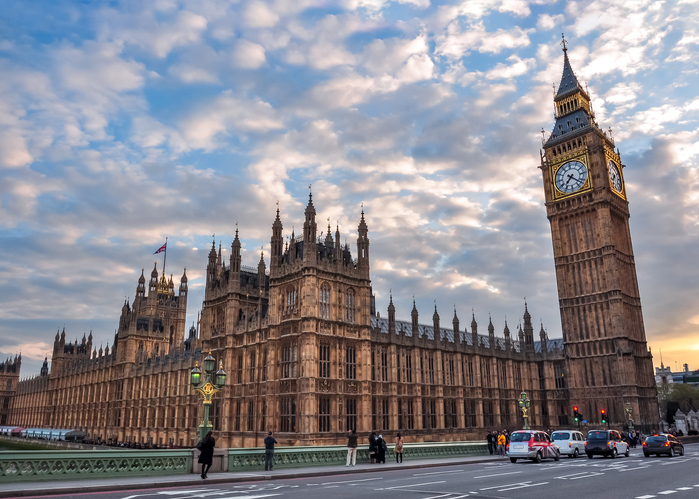Update on UK-EU Relationship
In light of the invasion of Ukraine by Russia, this update focuses on the extent to which the UK and EU have engaged and cooperated.
The EU has imposed the most far-reaching sanctions in its history on Russia for the invasion of Ukraine. Sanctions include export restrictions, a ban on access to EU airspace for all Russian airlines, sanctions in the financial sector and the freezing of assets for over 500 individuals and a handful of companies linked to the conflict.
As the UK is no longer a member of the EU, it has been pursuing measures against Russia independently, although it has done so in close coordination with the EU and G7. While the UK has done more in terms of limiting financial transactions and imposing a ban on the use of ports by Russian ships, the EU responded more quickly in imposing other sanctions, such as freezing financial assets.
Immigration policy for Ukrainian nationals
The EU Home Affairs Ministers have unanimously agreed to activate the EU’s Temporary Protection Directive. This ensures that Ukrainians fleeing from their country can live and work in the EU for up to two years, as well as access social welfare benefits and medical care. This applies to refugees from Ukraine since the 24 February.
In the UK Ukraine remains on the national visa list and all Ukrainians must apply for a visa before travelling to the UK. The Government has not lifted the visa requirement, citing security concerns. Currently there is one scheme for Ukrainian family members in place as well as a further sponsorship scheme for Ukrainian nationals. For more information see our article below.
Security of energy supply
The EU’s dependence on Russian oil and gas affects the UK because of the impact on wholesale prices, as well as for geopolitical reasons. The EU heads of state and government have published the main results of their informal meeting at Versailles from 10-11 March 2022, outlining how the EU can live up to its responsibilities and protect EU citizens, values and democracies and the European model. This declaration involves an outline as to how the EU intends to reduce energy dependency, in light of the 2050 target of climate neutrality. Measures include reducing overall reliance on fossil fuels faster, diversifying supplies and routes and further developing EU hydrogen markets. Additionally, the EU leader invited the European commission to propose a REPowerEU plan to end the EU’s dependence on Russian fossil fuels. The declaration can be found here.
UK Prime Minister Boris Johnson is understood to be open to attending this Thursday’s European Council, where EU leaders will discuss the war in the Ukraine. Following Brexit, he would need to be invited as a non-EU leader by European Council President Charles Michel. Such an invitation is yet to be offered. Mr Johnson will already be in Brussels to attend the NATO summit.
Other news
- The UK’s Free Trade Agreement (FTA) with New Zealand was published on the 28 February. The Government says the Agreement will boost UK-NZ trade by almost 60%. The International Trade Committee is taking more written and oral evidence and is inviting stakeholders for their opinion until the 3 April 2022.
- The 61st Plenary of the British-Irish Parliamentary Assembly (BIPA) took place on the 28 February 2022. It marks the first face-to-face meeting in nearly two years due to the pandemic. At the Assembly, Putin’s attack on Ukraine was condemned in the strongest possible terms. In the opening remarks of Northern Ireland and the UK, both sides highlighted the importance to strengthen bi-lateral ties. UK’s Minister for Europe, Mr Cleverly, responding to questions of the Assembly members, said that “having chosen to step out of the European Union, the UK has a real responsibility to make sure we replicate that level of bilateral engagement that the European Union would have provided”. You can read more here.
- Home Secretary Priti Patel produced a written statement on 1 March 2022, introducing the Government’s Economic Crime (Transparency and Enforcement) Bill in response to Russia’s invasion of Ukraine. The statement sets out the three key components of the Bill, being the introduction of a Register of Overseas Entities, reforms to the Unexplained Wealth Order and changes to the current sanction regime.
Key Dates for 2022:
- 30 June 2022: Deadline for determining whether the UK meets the conditions for exchanging personal data (DNA profiles, fingerprints and vehicle registration data) under the Prüm framework
- 1 July 2022: The new requirements for Export Health Certificates for EU imports into Great Britain, which were due to be introduced on 1 October 2021, will be introduced.
- 1 July 2022: Physical checks and phytosanitary certificates on most remaining SPS goods (such as meat and plants) at UK border Control Posts will be introduced (these were due to be introduced on 1 January 2022).
- 1 July 2022: Safety and Security declaration on EU imports into the UK will be required (these were due to be required from 1 January 2022).
- 1 September 2022: Checks for all dairy products will be introduced.
- 1 November 2022: Checks for all remaining regulated products of animal origin (including composite products and fish products) will be introduced.
- The grace periods for Great Britain to Northern Ireland trade in chilled meat products and food safety paperwork when moving agri-foods from GB to NI have both been extended indefinitely, while talks between the UK and EU on the implementation of the NI Protocol continue.

